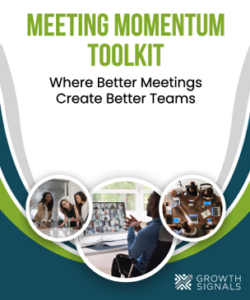Research suggests that 63% of U.S. workers are ready to leave their jobs in order to avoid stress. That is a staggering percentage, and it’s something that all employers should be aware of. Employee stress is terrible for businesses and it may cost you valuable talent.
But what causes all of that stress? What are the main stressors affecting employees, and what can employers do to minimize them?
We’re here to offer some insight that can help employers keep employees from getting overstressed and ultimately, burned out. Read on to learn more.
Lack of Recognition
Do your employees receive recognition for the hard work they do? If not, it may be contributing to their overall stress levels. Everyone wants to feel appreciated when they’re working hard and accomplishing goals for their organization.
Employees who consistently perform well may feel demotivated if their efforts go unnoticed. Recognition and acknowledgment of their contributions are crucial for maintaining motivation and job satisfaction.
Employers should consider improving recognition efforts within the workplace, be it through bonuses, promotions, or even just kind words and gestures that show employees they’re doing well. Employee appreciation goes a long way when it comes to keeping your employees’ stress levels in check.
Inadequate Communication
Poor communication within the organization can lead to confusion, misunderstandings, and anxiety. This may trigger chronic stress among employees.
When employees are unclear about expectations, goals, or changes within the company, it can impact their performance and overall quality of life at work.
Employers and HR professionals should aim to keep communication with employees clear and consistent. It may be beneficial to poll employees about communication methods to see where the confusion (and resulting stress) is coming from.
Unclear Expectations
How clear are the expectations that the business sets for the employees? They may not be as clear as employers think.
Ambiguity regarding job roles, responsibilities, and performance expectations can create a lot of extra stress. Employees need clear guidance to understand what their employers expect of them and how their work contributes to the overall success of the organization.
Employees cannot succeed if they aren’t sure what they should be doing or what goals they have to meet. Employees who don’t get clarity may find themselves looking for work elsewhere.
Limited Growth Opportunities
Capable employees often seek opportunities for career development and advancement. If they perceive a lack of career growth or are not provided with avenues for skill development, they may lose motivation.
If there’s a great employee at your business, what’s next for them? Are there new challenges for them to face (with proper compensation)? Are there avenues for them to gain new skills or promotions so they can further their careers?
Employees who are talented and successful often want to continue growing, especially if there’s more money on the table elsewhere. If they’re stagnant, they may start experiencing stress around their future growth.
Poor Work-Life Balance
An imbalance between work and personal life can lead to burnout and chronic stress. Employees need time to recharge and take care of their personal commitments and interests. A workplace that promotes a healthy work-life balance is more likely to retain capable employees.
A genuine work-life balance means that employees have ample free time without worrying about answering emails or being on-call, as well as proper compensation that allows them to live their lives and follow their own pursuits.
If life is all work and no play, employees will feel overwhelmed and mentally drained.
Inadequate Resources
Insufficient resources, whether in terms of technology, training, or staffing, can stop employees from performing at their best at work. A lack of necessary tools or support can lead to frustration and lower overall productivity.
Employers should make sure that their employees have what they need to succeed. They should receive proper training and the required supplies to do their jobs.
This is another situation in which a poll can be helpful. Ask employees if they need anything to do their job better. The results may be surprising.
Micromanagement
Capable employees often thrive when they have the autonomy to complete their tasks. Micromanagement, on the other hand, can create stress and hamper their ability to make decisions and demonstrate their competence. Employers who micromanage their employees are creating unnecessary stress for their employees.
Employees experiencing micromanagement may feel as though they’re under constant scrutiny. They don’t have the flexibility to be creative or think outside of the box. Creativity is often what makes businesses thrive, so bosses who micromanage are damaging their own businesses.
Unhealthy Work Environment
A toxic or unsupportive work environment can be a significant stressor even for the most capable employees. Employers should check in often to ensure that their businesses are free of toxicity.
Workplace conflicts, bullying, or even a simple lack of camaraderie can negatively impact the mental well-being of otherwise fantastic employees. Employees who feel stressed out by a toxic work environment are unlikely to stick around, and this can be damaging to the business.
You don’t want your business to develop a reputation for being toxic or unhealthy.
Insufficient Compensation
While not the only factor, inadequate compensation can contribute to stress, especially if employees feel undervalued for their contributions. Competitive and fair compensation is essential for retaining capable talent and attracting new employees who can add value to your business.
Many employers are resistant to changing their compensation packages, but they should consider the costs associated with hiring new employees. It makes far more sense to reward current employees with better compensation than it does to go through the recruiting and hiring process again.
Resistance to Change
How often do things change in your business? Have employers considered how these changes may be affecting employees?
Constant changes in processes or organizational structure without proper communication and support can create uncertainty and stress. Employees may struggle to adapt to new situations if they feel unprepared while these shifts happen.
They may also begin to worry about larger organizational changes that could impact their jobs.
Non-Work-Related Stressors
Sometimes, employee stress has nothing to do with work. After all, employees have lives outside of the workplace, and employers should remember that those lives can get stressful sometimes.
There are so many potential external stressors that employees may be experiencing, but here are a few common ones.
Health Issues
Employees who are dealing with physical or mental health issues will also often deal with more stress. A weakened body or tired mind makes it difficult to work or succeed. Employees need to feel well in order to thrive at work.
Employers who are empathetic to these issues will be able to retain more employees in the long run.
Life Changes
Sudden life changes, even if they’re positive, can be stressful. A life change doesn’t have to be traumatic to cause stress.
So what types of life changes can cause stress?
Perhaps the employee has a new roommate that they’re adjusting to. They may have a new pet or a new responsibility that’s taking up more of their time and mental energy.
They may be dealing with the stress of a new relationship or taking a new class. These changes may seem small, but they can still be stressful.
As these transitions happen, employees tend to adjust. The stress passes and employees can, once again, begin to thrive at work.
Large Life Events
Large life events are common stressors (again, even if the events are positive).
Perhaps an employee got married or divorced. Either of those things can cause significant stress that may impact the employee’s performance at work.
Welcoming a new member of the family or losing a family member can cause stress. Buying a new home, while exciting, can cause stress.
In other words, any large events may become stressors. Leaders who suspect that their employees may be going through things like this may want to ask if they need anything to help them during this transitional period.
Look Out for These Main Stressors
These main stressors may be impacting the overall success and well-being of your employees. Employers would do well to look out for these things and try to catch them as early as possible.
Happy employees who are able to relax and balance work with their personal lives are more productive and successful.
Are the employees at your business ready to learn an important new skill? With our Resilience Training, employees will learn how to avoid burnout and succeed at work even when times get tough.
Get a quote for this program from Growth Signals today and help your employees thrive.



